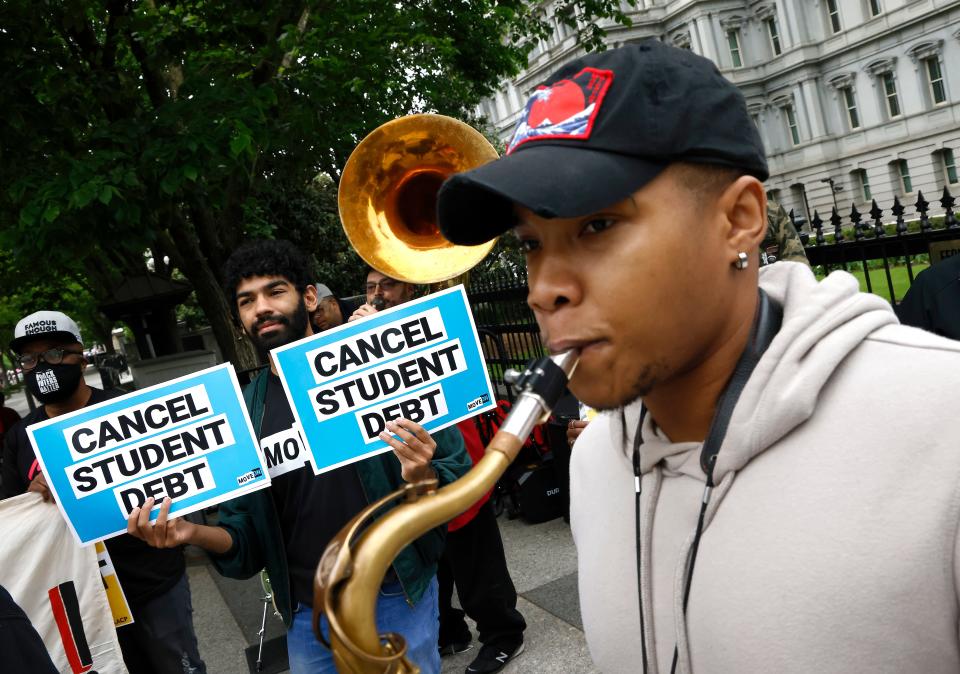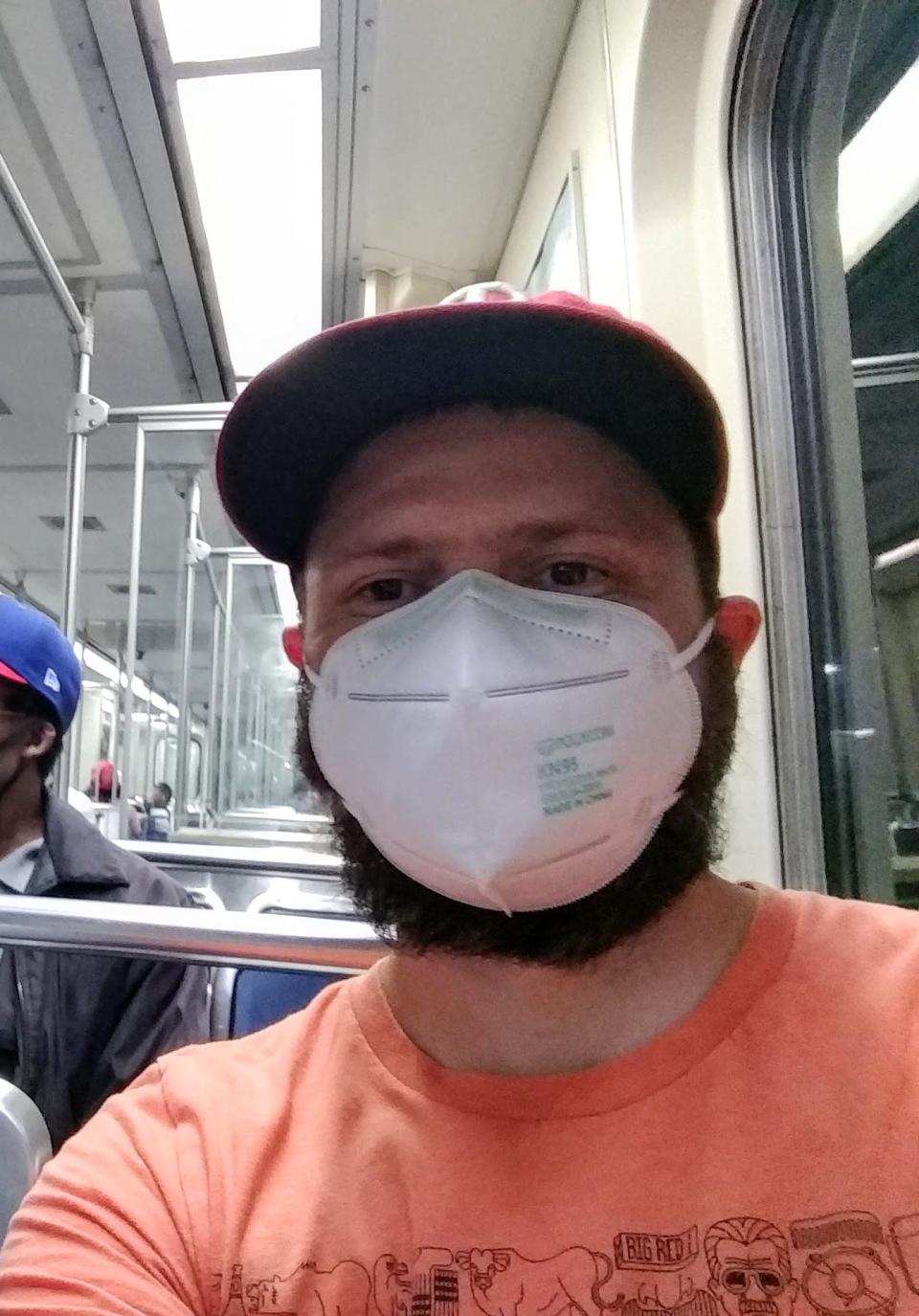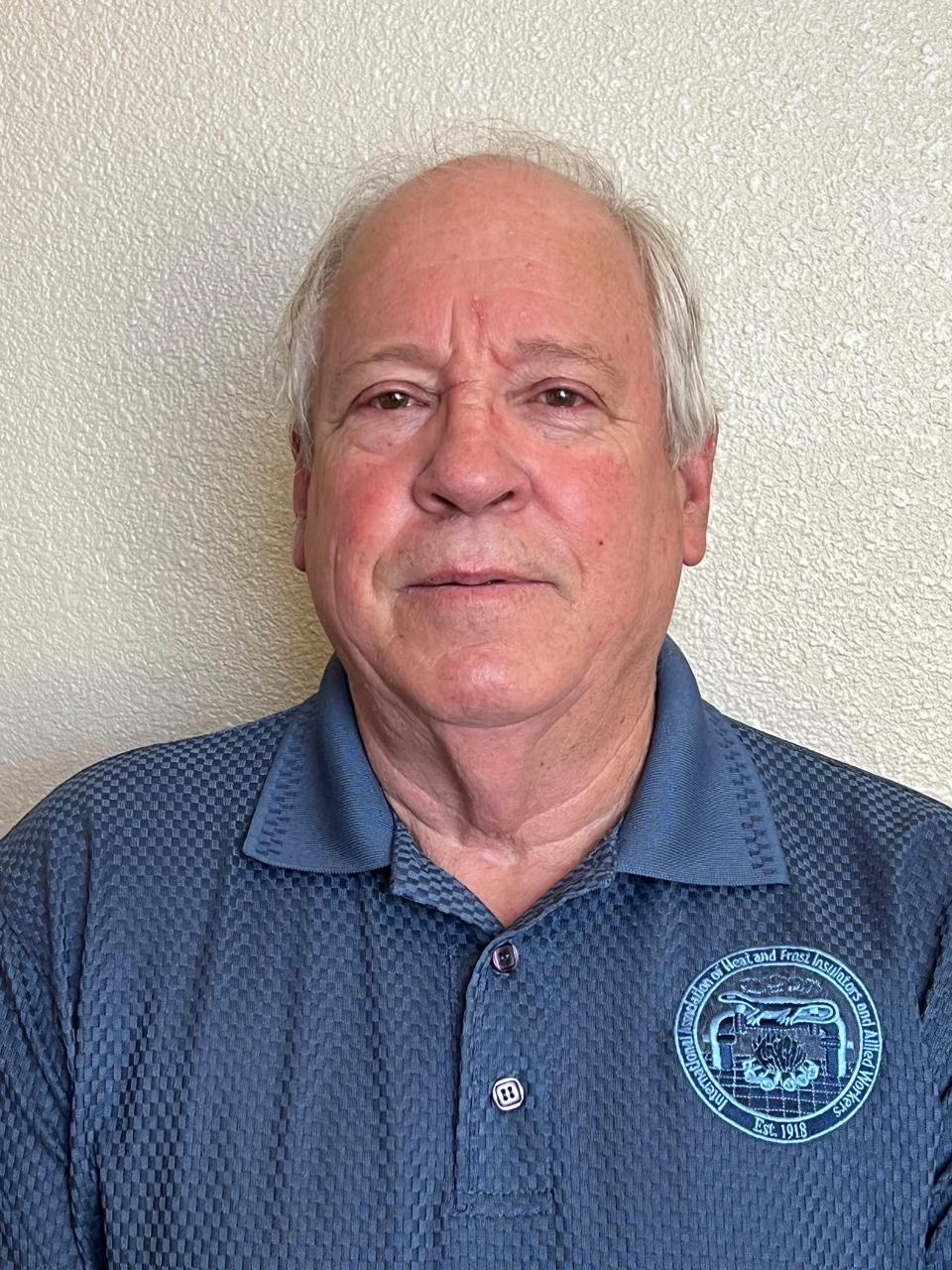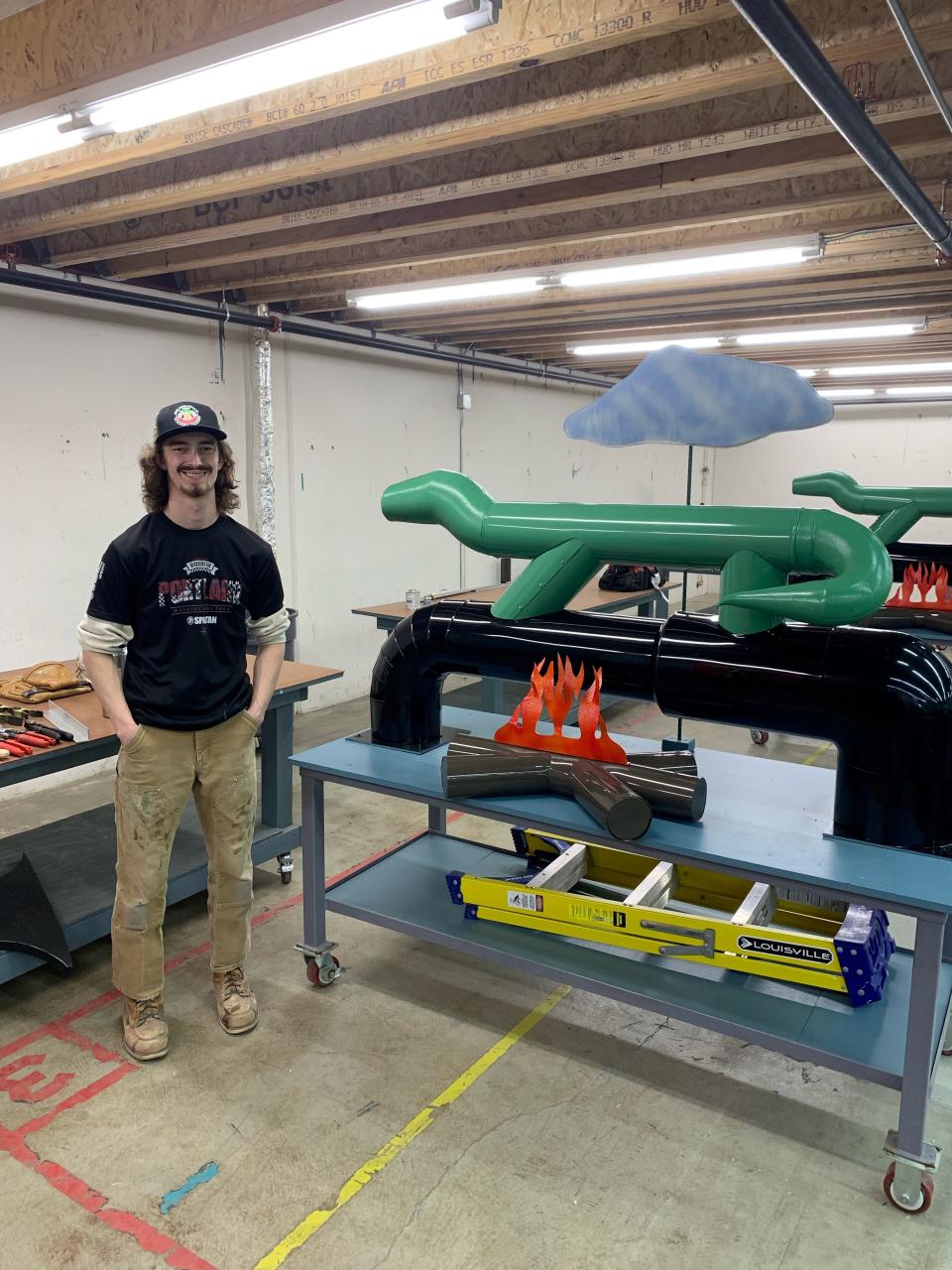Is student loan forgiveness fair to those without college degrees? Americans remain divided over costs
Nat Lownes, 40, didn’t attend college because it was too expensive and he came from a poor family. But Lownes, a software engineer who has had a variety of odd jobs, said he is squarely in favor of debt cancellation.
Lownes, who lives in Philadelphia, is among a majority of Americans who say student loan debt relief is needed, even if it doesn’t benefit themselves. Plenty of his friends have a lot of debt and no guarantee of a job. And while they're canceling student loan debt, he said, the government should wipe out other debts like car loans.
"Cancel everything," he said. "The people I know, that are in similar positions to me, want opportunities to be available to people."
Many Americans are discussing widespread debt cancellation at a time when the government has frozen payments on federal student loans for more than two years and President Joe Biden has debated canceling some of the debt altogether.
USA TODAY reached out to Americans without degrees to get a better sense of how they felt about the possibility of student loan forgiveness.

Some people without student loan debt described debt forgiveness as a handout. Others said they were not against the idea of student loan relief, but hoped it would go to the people struggling the most rather than to the already wealthy. In all cases, their views were more nuanced than blanket opposition and most criticized the cost of higher education.
Biden has yet to say if and how much debt would be canceled, but he campaigned on erasing $10,000 in debt per borrower. The payment moratorium is scheduled to last through August, though it's expected to be renewed.
Many Democrats have argued that Americans are being held back by more than $1.7 trillion in student debt and need relief, while many Republicans have said people who didn’t go to college or who already paid off their student loan debts shouldn’t see their tax dollars go toward helping others.
In May, Sen Mitt Romney, R-Utah, introduced a bill to block potential widespread debt cancellation. He said it would be unfair for the Biden administration to cancel student loans for those who “already repaid their loans or decided to pursue alternative education paths.” The bill is unlikely to move forward in the House or Senate, where Democrats have a majority.

Sen. Richard Burr, R-North Carolina and the ranking member in the Senate’s committee on education, echoed a similar point in announcing that bill when he said, “Taxpayers who did not attend higher education or paid off their student loans responsibly should not be footing the bill for those who didn’t.”
But a recent round of polls show many Americans -- Democrats more so than Republicans-- are open to some kind of debt forgiveness:
An April poll by Politico/Morning Consult found that 35% of registered voters were in favor of at least some student loan debt forgiveness. And another 30% favored at least some amount of debt relief for lower-income Americans. About 58% of people without student loan debt would be in favor of some level of debt cancellation.
A NPR/Ispos poll in June found that 55% of Americans supported $10,000 in debt relief per borrower. The rate of support was higher among those with student loans.
A USA TODAY/Public Agenda poll in July found nearly 60% of Americans support “forgiving a significant portion of government student loans for college graduates who have excessive debt.” That rate of support fell slightly when Americans were asked about forgiving debt for all graduates regardless of income.
An Economist/YouGov poll in July showed 48% of those who never had student debt would support cancellation for those making less than $100,000 compared to 39% opposed.
Americans need to embrace 'personal responsibility'
Michael Patterson, 68, is proud his career didn’t require him to take on debt, and he’s opposed to current efforts to discharge debt for college graduates.
Patterson has spent the last 40 years working as an insulator in California. Working in his union, The International Association of Heat and Frost Insulators and Allied Workers, is a family legacy. Patterson’s father joined the union in 1958. Patterson serves as the business manager of a local chapter based in Ontario, California.

He said people who take on any debt, including a house, car or student loan, agree to pay back what they owe.
“I am all in favor of personal responsibility,” he said. “Why would a taxpayer be responsible to pay the debt of another when they personally chose to go that route?”
Part of Patterson’s opposition toward debt forgiveness is driven by his skepticism about the value of a college degree. Why should he and other taxpayers, he said, pay for students to study for “some degree that doesn't have anything to do with real life,” and to party in dorms. Patterson, a registered Independent, also sees the effort to discharge student debt en masse as an attempt by Democrats to sway voters.
While he is opposed to forgiving any amount of student loan debt, Patterson said if it happened he would hope that the relief would benefit "people at the bottom rungs of society."
Some don't mind helping Americans who want debt relief
Lownes, the software engineer and a coordinating member of the Philly Transit Riders Union, said he favors widespread debt cancellation because many of his peers went to college and have debt, but have little to show for it.
He said ideally college would be free, but more broadly Lownes, who describes himself as independent but is registered Democrat to vote in primaries, said people shouldn't be penalized in the workforce if they skipped higher education.
"We just need to raise wages," Lownes said. "Some people do just want to be a bus operator, and I think they should be paid very well for doing that."
Adalila Camal Vargas, 45, is a beverage cashier working in Las Vegas. She didn't want to attend college, but when her daughter in 2015 wanted to attend a nine-month program to become a nursing assistant, Camal Vargas, a member of Culinary Workers Union Local 226, took out a loan worth $27,000 to help cover the costs.
She owes about $2,000 now. Camal Vargas, a Democrat, said she expects to pay it off before any debt relief announcement is made, but she is still in favor of relief for those who are struggling.
"A lot of kids have a lot of debt. They owe more than I do," she said. "But I'll support them."
Camal Vargas said it’s a dream for young people like her daughter and her peers to get their degrees.
But Camal Vargas said she is frustrated at how students pursue their degrees and at the cost of a college education. Why take on the student debt, she said, if people are going to work in a field unrelated to what they studied?

“If you want to have this kind of debt, you have to work,” she said. “Because if they go to college and decide to do something different, it’s totally wasting time.”
Camal Vargas said she wished the government at the state and federal level would provide more financial aid programs to students. Though Camal Vargas understands why some people want to go to college despite the cost, she said she is happy with her union job for 21 years.
“It helped me to pay [for] my house, my bills, raise my kids,” Camal Vargas said.
Joshua Shepperd, 38, feels sorry for people with thousands in student loan debt, though he himself never wanted to pursue that route.
At 22, he was attending a junior college in California, but he was broke and felt out of place. While his teammates on the baseball team could drive to practice in their own vehicles, Shepperd said he rode the bus in his uniform. At the same time, many of his friends were just graduating college.
“I was like, s***, I haven’t done nothing with my life,” he said. “You know, what screw it, I am going to join the Army.”
He served for eight years in the National Guard working as a combat medic, during which time he completed a tour in Iraq. When his contract was up for renewal in 2014, Shepperd had met the woman he would eventually marry.

Rather than risk reassignment to a different part of the country, he opted to stay closer to her in northern California. That meant he needed to find a new line of work, and her family suggested he consider working as a glazier. Thanks to his military service, he was able to join the local chapter of glaziers, and he has been working in the field ever since. Shepperd, who now works for Mission Glass, said he can make up to $180,000 depending on his workload.
His military service granted him the GI Bill, a federal subsidy veterans can use to cover much of their college costs, but he’s planning on saving the benefit for his children.
Part of Shepperd’s reason for avoiding a college education, he said, was to save himself tens of thousands of dollars for a degree that may not translate to a job. And joining the military, he said, meant that many of his basic expenses in his early adult life such as housing, food and clothing were covered by the military.
He said he would still be in favor of debt cancellation for others and feels sympathy for people yoked with student loan debt. The money going to repayment, he said, could have gone to building long-term wealth by buying a house.
“I understand being in debt would suck,” Shepperd said.
Student debt relief shouldn't be for everyone, some say
Ken Rusk, 58, appreciates the value of a hard job. His first job at 15 was digging ditches, and he now runs a contracting company in Toledo, Ohio, with roughly 200 employees. Rusk, who graduated high school in 1982, took some college courses but found he preferred working on his own terms.
Rusk is also the author of "Blue Collar Cash," a book about finding success without a college degree, and advocates for blue-collar jobs as an alternative to a traditional college education. Rusk isn’t against a college education, and he said he wants people who work in technical professions, like doctors or engineers, to have spent time getting educated.
But Rusk, who is independent but leans conservative, said he is frustrated by what feels like a push from society to direct all young people into higher education, especially when some professions like plumbing or carpentry may pay as much, or more, as careers that require a degree.

“The stigma of blue-collar work has been manufactured by the higher education system,” Rusk said
Rusk’s position is echoed by many Americans, according to a recent poll from USA TODAY and Public Agenda. About 60% of respondents said it was a problem that “too many high school students are pushed to attend college.”
Given the elitism he associates with higher education, loan forgiveness is hard for Rusk to swallow. He said he fears erasing the debt would foster the expectation that the government will always take care of people.
Even so, he said he was not unilaterally against canceling some student debt for those struggling. But he said any relief granted to college graduates should be available in the form of a grant they could use to start a business.
“You certainly don’t want someone who is out there swinging a hammer or fixing the sewer or the road you’re driving on to go, ‘Hey man, what’s the deal? How do I benefit out of this?’” Rusk said.
As a high school senior, Bailey McClurg knew he wanted job security after graduating. He knew many local unions offered a guarantee of work to people who completed their apprenticeship programs, and McClurg said he was no fan of school. He even bristled at the thought of having to pay college application fees, so applying for trade school was an easy decision.
McClurg, 22, is now a member of a Washington state chapter of the International Association of Heat and Frost Insulator. He lives in Enumclaw, Washington, and said he makes $93,000 a year, and he expects to earn more when he completes his program.

He estimated he will pay off his $468,000 home before many people finish paying off their student loans. McClurg, who is politically unaffiliated, said he is financially comfortable, but he feels not everyone respects that decision.
"Why do we get looked at like we're bottom class because we didn't go to school?" he said. "If you don't go to college, I don't think you should be looked down on for it."
It’s difficult for him to get on board with erasing the debt for graduates who are doing well financially because he fears that has the potential to widen the divide between the haves and have-nots. McClurg said he is also somewhat resentful of paying for others’ debts when he specifically enrolled in trade school to avoid the “disgustingly overpriced” cost of attending college.
But McClurg said he is not opposed to relief for people who are squeezed financially by the debt, though he wishes more people would consider options other than a college degree. He said states ought to fund colleges more on the front end to help prevent the need for students to finance their education through debt.
"Why are they putting such a high price on strengthening the nation's knowledge?" McClurg asked.
This article originally appeared on USA TODAY: Is student loan forgiveness fair? Americans without degrees are split

